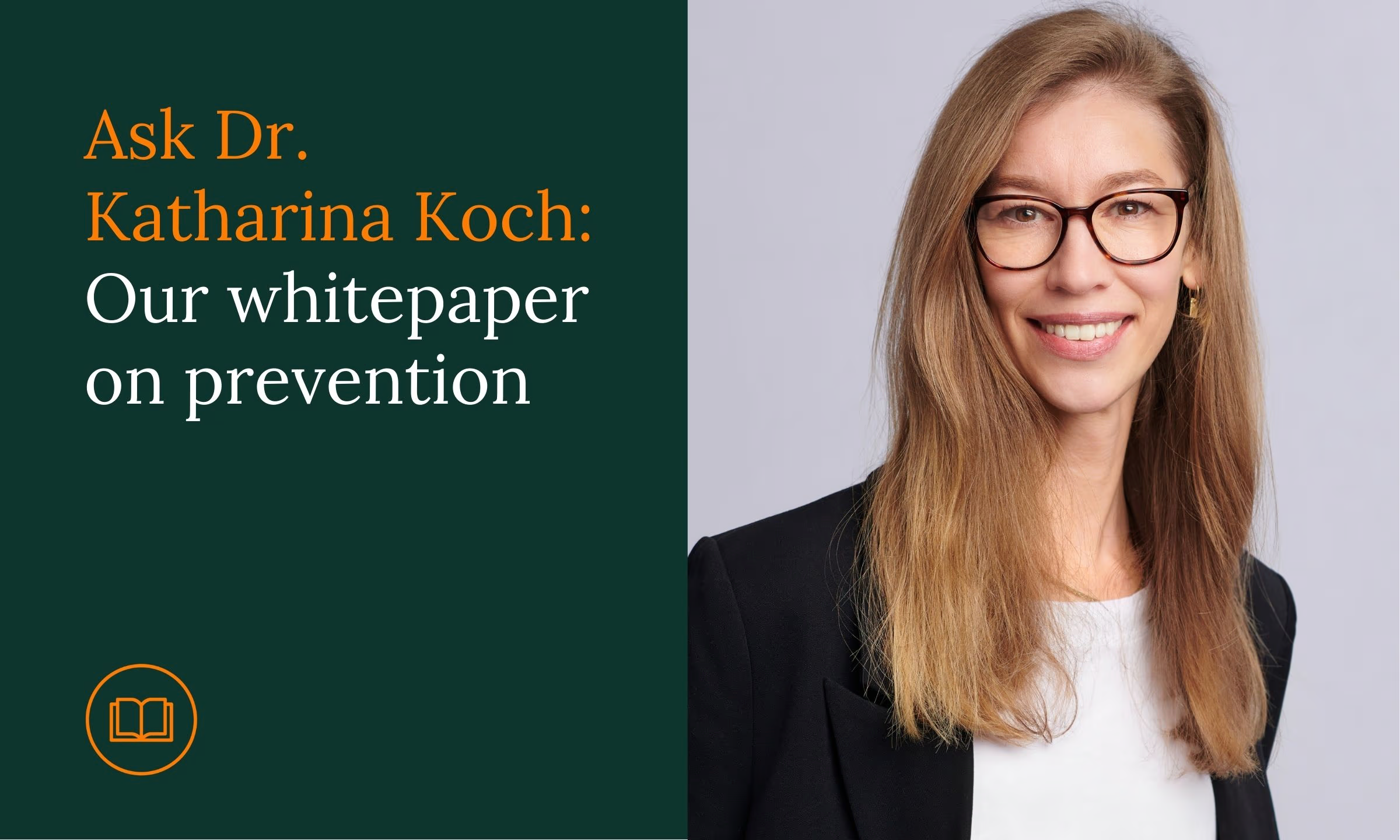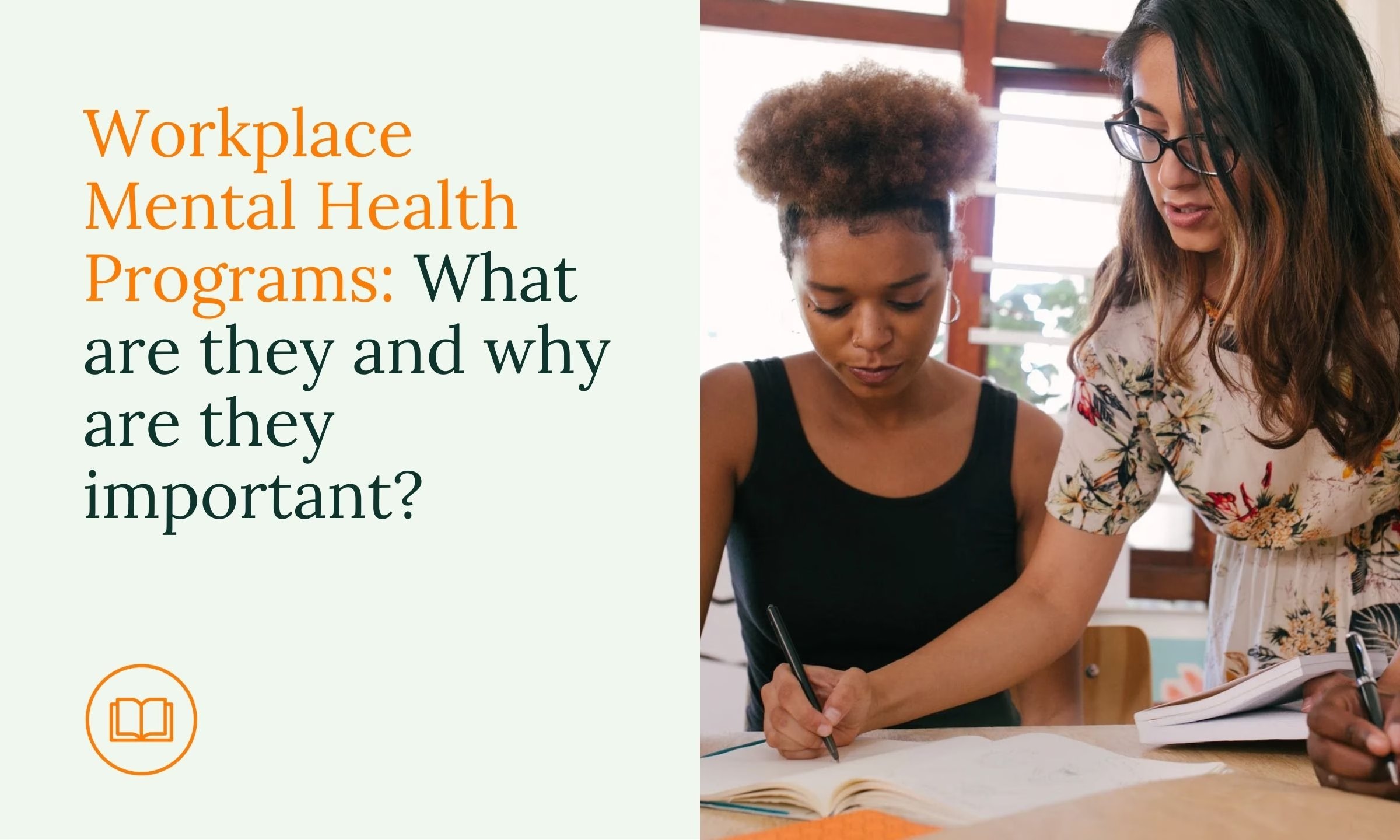Everything you need to know about work, mental health, and HR – from an expert. Join us in our series with Dr. Katharina Koch, a Clinical Psychologist certified in Cognitive Behavioral Therapy and Head of Psychology here at nilo.health. In this special edition Katharina, answers frequently asked questions our new whitepaper, “Preventative Mental Health Support Shows Astonishing Results”.
How did you collect the data for the whitepaper?

You have just published nilo.health’s latest whitepaper, about the power of preventative mental health support. Why write a whitepaper?
We wrote the whitepaper, first and foremost, because we had exciting data and results that we wanted to share with our wider community — more on that shortly!
But also because as we’re working in the mental health sphere, it’s important that we’re always considering our work from an evidence-based perspective. We love our user feedback: it means so much to hear stories about how nilo.health is helping people.
But we also take scientific accuracy very seriously. Because the work we’re doing is healthcare-related, we need to make sure that everything we do is guided by rigorous, evidence-based methods which show real change.
As Head of Psychology here at nilo, that’s the work that I do. And writing and publishing these whitepapers is a way of sharing what we learn with you, and committing to our values of transparency and rigorous, evidence-based work.
How did you go about collecting the data for the whitepaper?
Our white paper is based on two standardized measures, the PHQ and the WHO 5. Those standardized questionnaires measure anxiety and depression, as well as general well-being. We also measured a range of self-assessments, for example, stress levels, sleep, motivation and energy.
We grouped 798 participants, who all used nilo.health, into three groups based on their baseline symptom severity — mild, moderate and severe. And then we focused on the moderate and severe groups.
Both of these groups experience symptoms, but the moderate group is not impacted by their symptom severity too much in their day-to-day functioning. They might, for example, experience some levels of anxiety or worry, conflict, or sleeping problems.
The severe group, however, is impacted in their daily functioning by, for example, depression or anxiety or burnout. And then we studied these participants’ reaction over time to nilo.health, using those standardized measures.
And what did the results show?
The results showed dramatic improvement for both the moderate and severe group! Well-being scores improved, while levels of depression and anxiety decreased. On the self-assessment side of things, our users also reported increased energy, motivation and better sleeping.
What was particularly fascinating in these results was the impact on our moderate group. Typically, scientists don’t study moderate mental health symptoms simply because these people don’t tend to seek treatment for their mental health until it deteriorates.
But our study showed that using nilo.health as a preventative method really works. That means that you can build up your mental health resilience and take care of yourself and prevent issues building to a crisis.
Think of it as the equivalent of eating well and exercising to preemptively take care of your physical health — you can preemptively take care of your mental health, too, and you’ll feel better and avoid serious issues down the line as a result.
From a company perspective, too, this means that you can help your employees feel good every day, rather than dealing with burnout and other big issues that occur after steady mental health deterioration.







